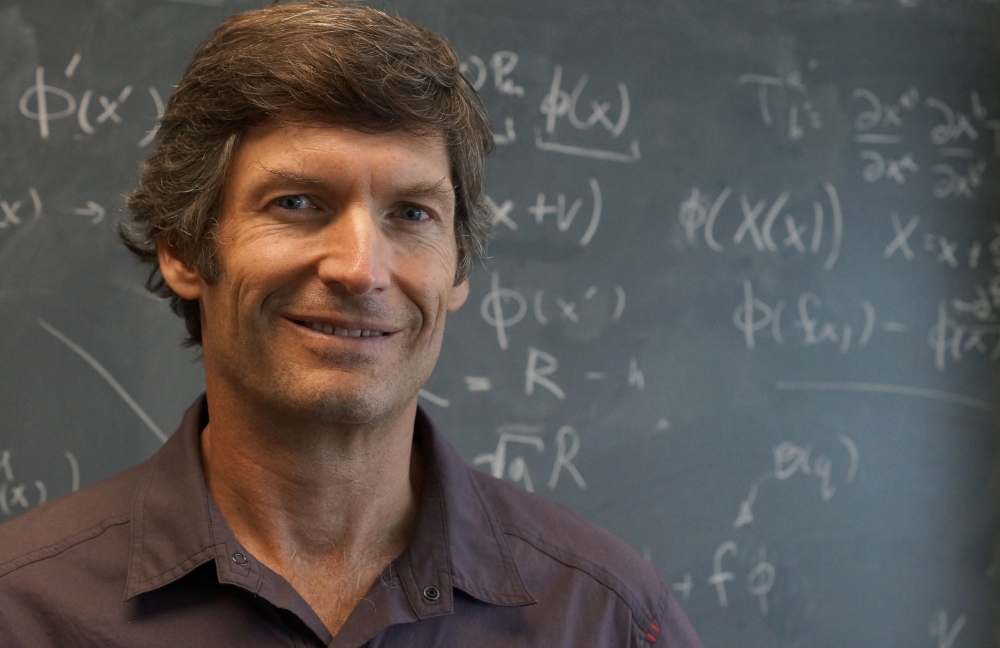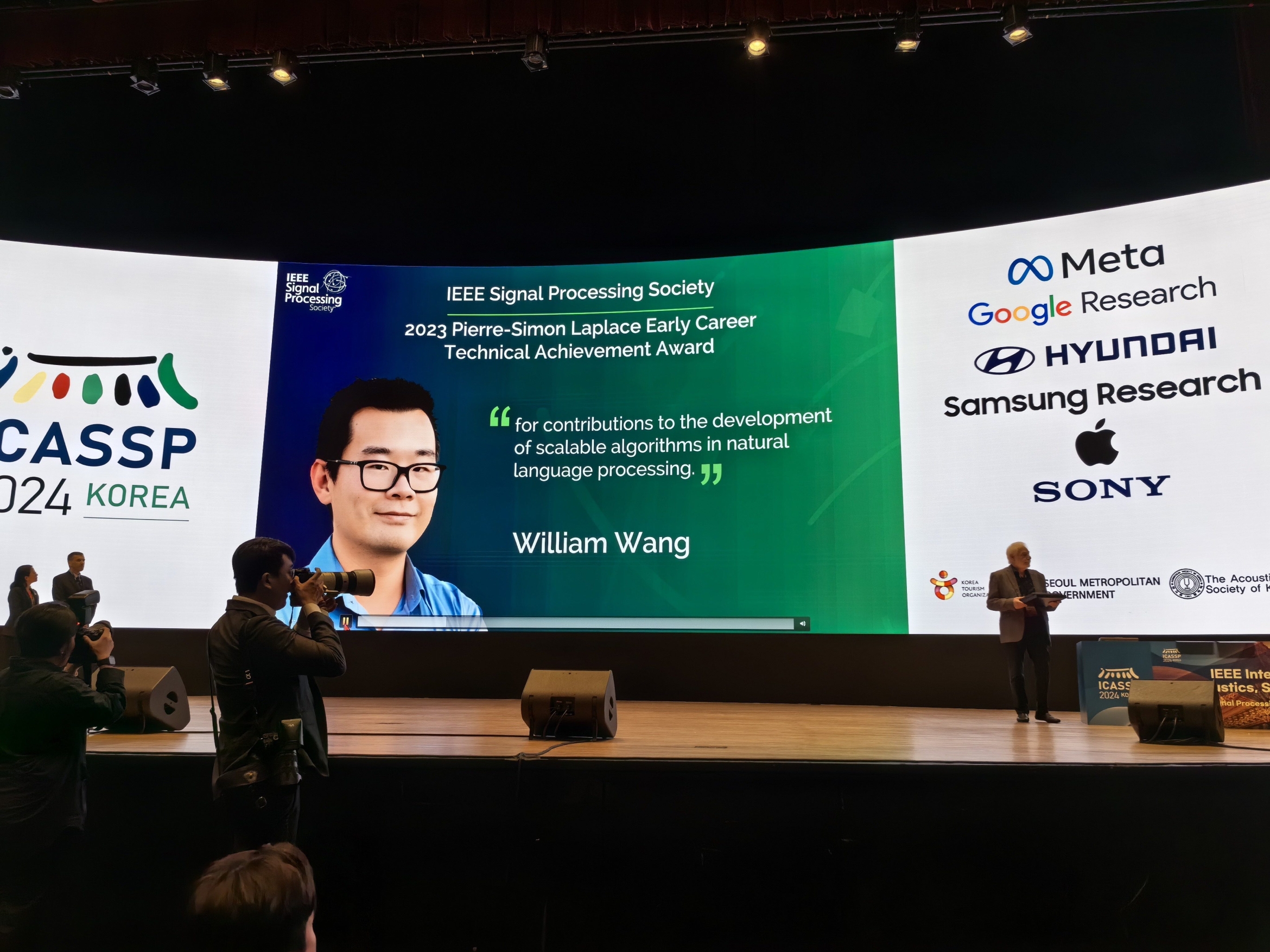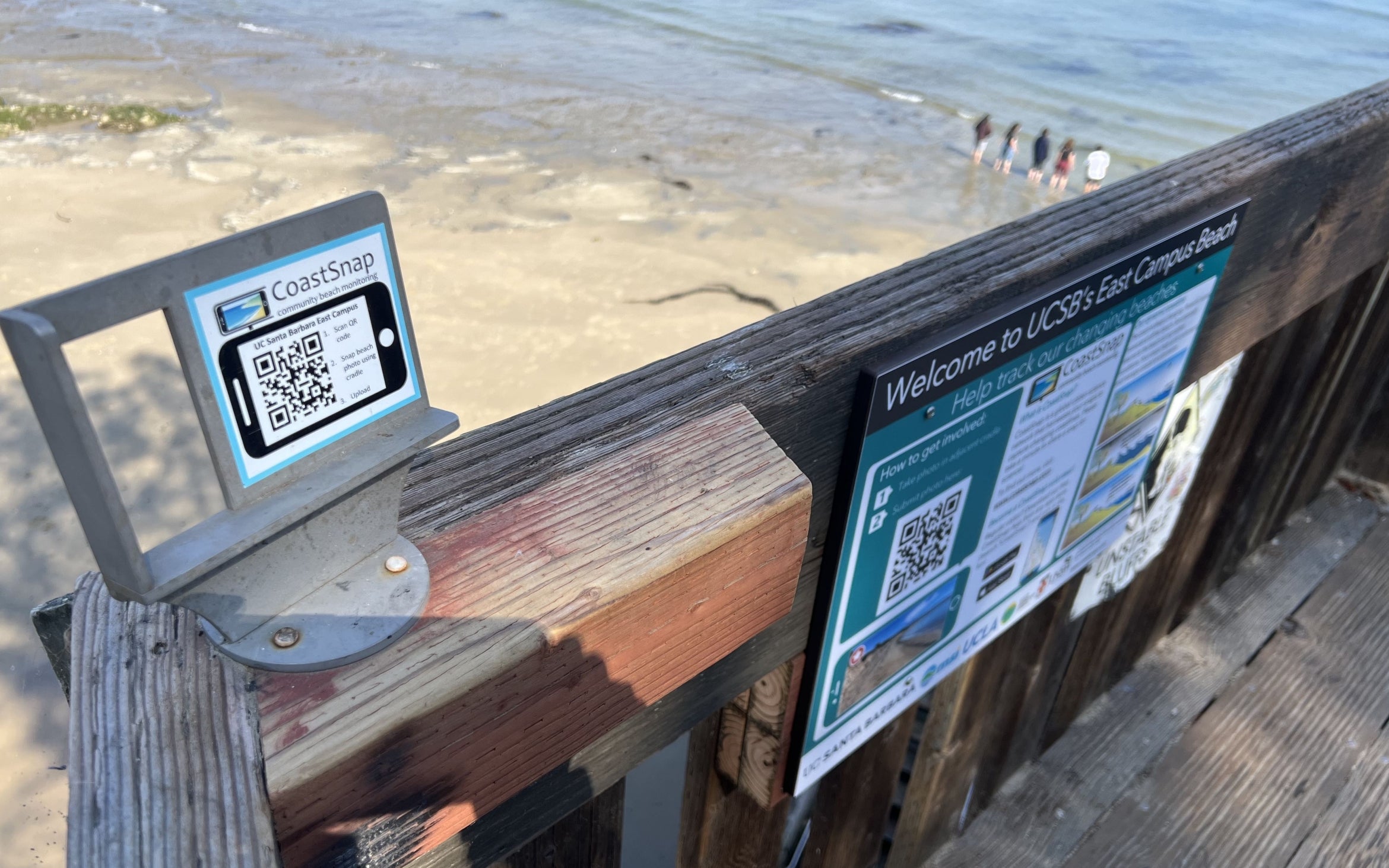
The Physics of Quantum Space and Time
For theoretical physicists, the search for a unifying “theory of everything” — a description of space-time that would reconcile the basic principles of quantum mechanics, Einstein’s theory of general relativity and the other forces of nature — has long been the holy grail. The current scientific description of space-time — a cornerstone of such a theory — is inadequate because quantum mechanics is at odds with general relativity.
To explore deep questions that may one day help resolve this longstanding paradox, UC Santa Barbara theoretical physicist Steven Giddings has received a $100,000 two-year grant from the Foundational Questions Institute (FQXi). He will study quantum observables — mathematical quantities that characterize physical properties, such as energy, spin or position — that play a central role in describing the division of a system like the universe into smaller entities. Q-observables, as they are also known, help not only to distinguish observers from the systems they measure but also to describe their interactions, as part of a possible and more fundamental description of space-time.
Although the concepts of special relativity and quantum mechanics fit together nicely, general relativity and quantum mechanics are much less harmonious. Factor in the principle of locality, which states that an object is directly influenced only by its immediate surroundings, and theoretical scientists face a real conundrum.
“This conflict is particularly seen when describing black holes, whose evaporation leads to an apparent paradox discovered by Stephen Hawking more than 40 years ago,” said Giddings, a professor in the Department of Physics. “Evidently part of our current foundation requires modification. Quantum mechanics is well-tested, but locality is ultimately difficult to even formulate, partly because quantum mechanics indicates that space and time themselves have a certain quantum fuzziness.”
By studying the properties of quantum observables Giddings seeks to develop a more basic description of quantum space-time. “In short, familiar space and time may be an illusion, emerging from a more basic quantum reality,” he said. “Quantum observables can help us make contact between this more basic reality and what we describe as ‘happening.’”
Giddings will focus on developing a description of observables that fits within the laws of quantum mechanics yet respects certain basic properties of gravity described by general relativity. “We know that ultimately general relativity is an approximation and needs to be completed by some more fundamental theory,” he said. “Thinking about observables and where you have something like classical space-time and where you don’t is likely a guide to getting at some of the deeper principles in the more fundamental formulation we’re seeking for quantum gravity.”
FQXi selected 20 teams to receive a total of $1.85 million in funding for research and outreach projects on the fundamental nature of events in physics. The winners, chosen from nearly 250 applicants worldwide, explore deep questions in physics, cosmology, philosophy and related fields.
“The notion of an ‘event’ is one of these things that seems so obvious and so familiar in everyday life,” said FQXi associate director and UC Santa Cruz cosmologist Anthony Aguirre. “Yet events simply don’t exist in a fundamental physics description of the world in terms of forces, particles, fields and wave functions. An understanding of ‘events’ is key to understanding how the reality we experience relates to fundamental physics. We’re excited to see the output of these fascinating research projects and what they tell us about how to understand the universe we live in.”
FQXi has a mission to catalyze and support research on questions at the foundations of physics and cosmology, particularly new frontiers and innovative ideas integral to a deep understanding of reality but unlikely to be supported by conventional funding sources.



